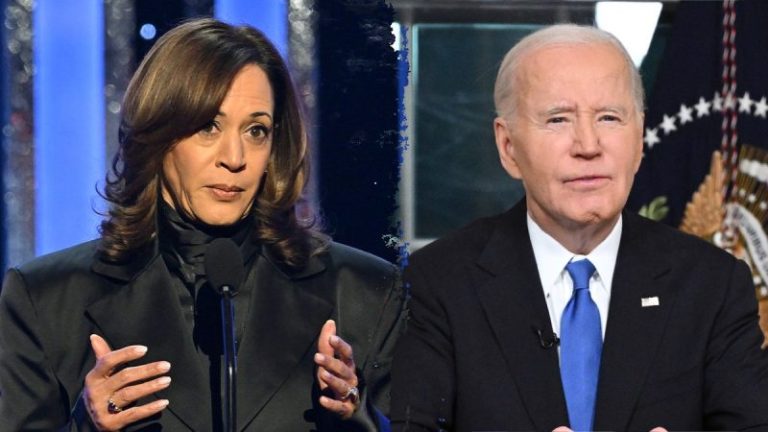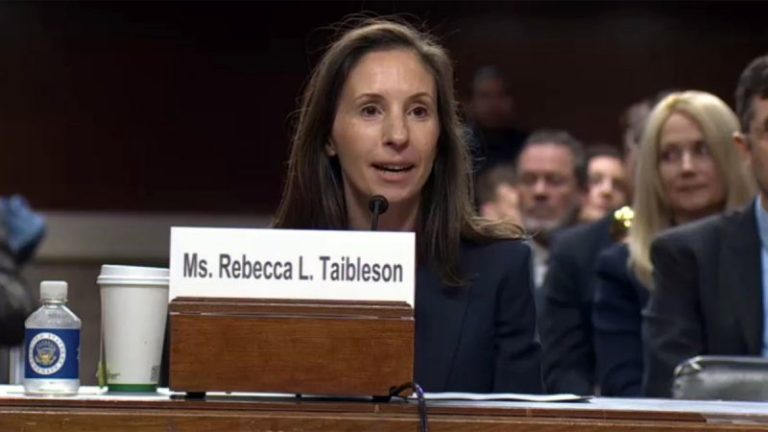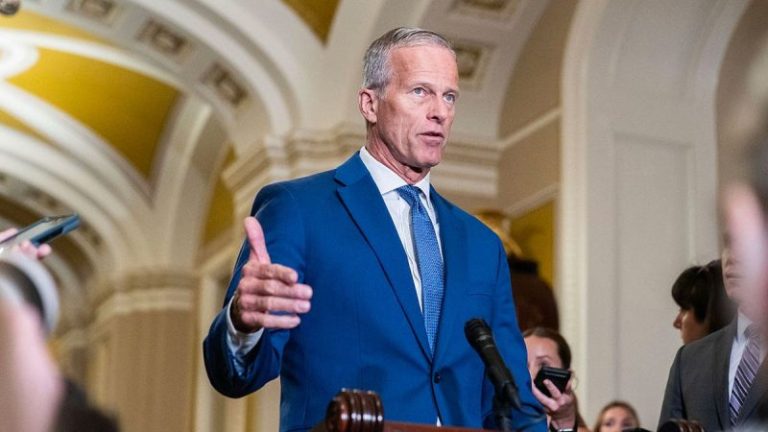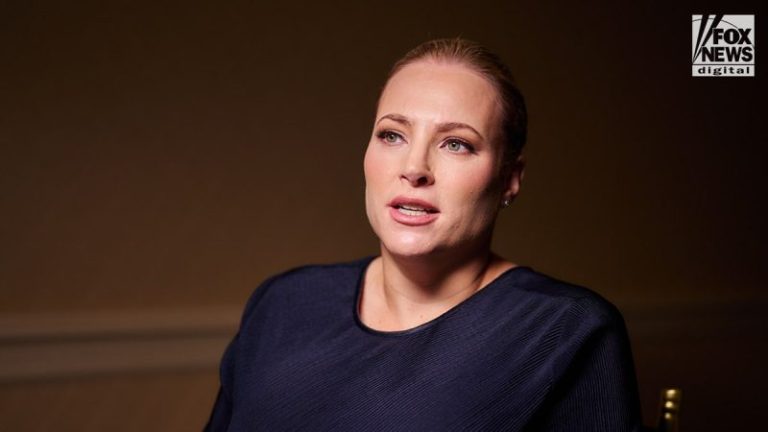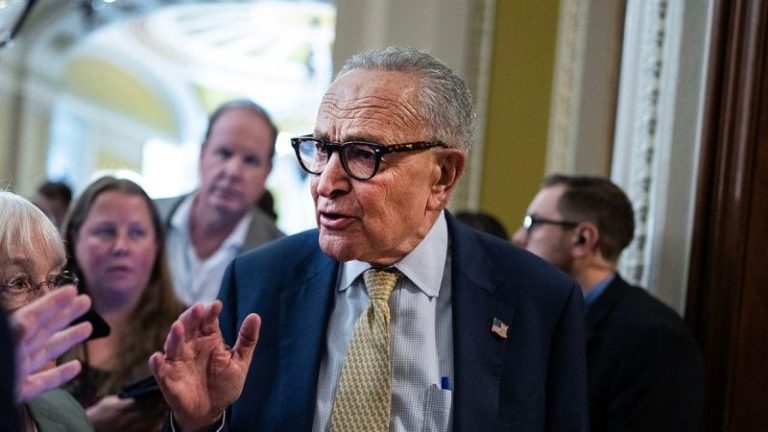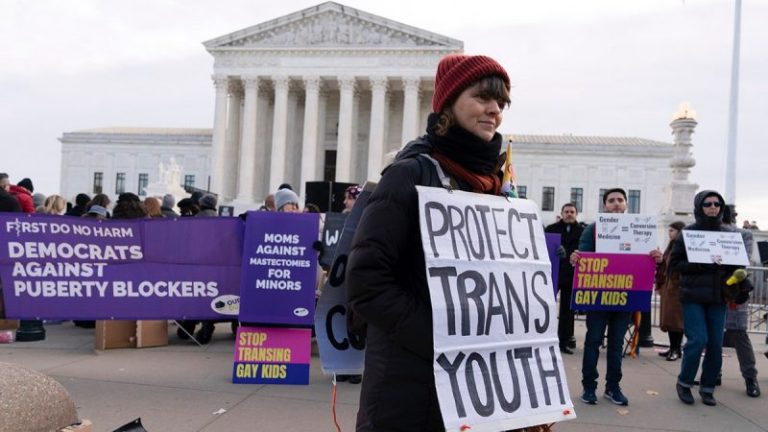Senate Majority Leader John Thune, R-S.D., said he believes Senate Democrats are posturing for a government shutdown to score a political win with their base, and he’s trying to prevent it.
In an interview with Fox News Digital, Thune argued that Democrats, led by Senate Minority Leader Chuck Schumer, D-N.Y., lack a real reason for not backing the GOP’s short-term government funding extension other than to appease the ‘far left.’
Thune said that in March, when Democrats last joined Republicans to keep the government open, Schumer and his caucus made a ‘very different argument’ about averting a partial government shutdown, but the move was unpopular with their political base.
‘It’s getting to the point now where their base [has] got so much influence in the party, and they’re so demanding on just resisting and fighting everything, with respect to the Trump administration, that they can’t see straight,’ Thune said.
‘It is borderline pathological. It’s like a disease,’ he continued. ‘They just — that this is something with which they’re afflicted, and I think it really blurs their vision. And I think they run the risk with this, again, of putting themselves in a position of where they are viewed as the party that’s trying to block the government from being funded.’
House Republicans unveiled their stopgap bill, known as a continuing resolution (CR), earlier this week that would keep the government open under current spending levels until Nov. 21.
The bill is ‘clean,’ meaning there aren’t partisan policy or spending riders, save for the millions meant for beefing up security measures for lawmakers, the judicial branch and the administration, and funding meant for Washington, D.C.’s budget.
While the Republican-controlled House is expected to pass the bill on Friday, the Senate is a different story. Despite Thune commanding a majority in the upper chamber, he will need Senate Democrats to support the bill. And so far, they aren’t budging.
Thune contended that the bill is everything that Democrats — when they controlled the Senate under former President Joe Biden — dreamed of: a clean, short-term bill. But the issue at hand now is a matter of communication.
Schumer has accused Thune of not speaking with him, or Senate Democrats more broadly, about the bill, and he has labeled the GOP’s push to avert a partial government shutdown a partisan effort led by President Donald Trump.
But Thune said he did try to talk to Schumer last week when the GOP was gearing up to change Senate rules to blast through Democrats’ blockade of Trump’s nominees.
Thune went to Schumer on the floor to discuss the then-ongoing talks between Republicans and Democrats on a since-failed deal for confirmations, but he recalled that the Democratic leader brushed him off.
‘He couldn’t get out of the conversation fast enough,’ Thune said. ‘He was, like, running off the floor. So, I mean, there was certainly an opportunity there to say, ‘We need to sit down and talk about, you know, a CR and how to fund the government.’ I just think this is more political posturing.’
‘That’s the way it’s supposed to work. But the way Schumer likes it to work, and I think this is, again, part of his business model, is you go into his back office, behind closed doors and write this, you know, in the dark of night, and that’s just not the way we’re doing business,’ he continued.
Senate Democrats unveiled their own counter-proposal to the GOP’s bill late Wednesday night that includes a slew of their priorities not included in the clean CR, like permanently extending expiring Obamacare premium subsidies, undoing the ‘big, beautiful bill’s’ Medicaid cuts, and clawing back the canceled funding for NPR and PBS.
Thune said that some of the issues that Democrats were pushing in a short-term extension ‘don’t fit there,’ but that conversations, particularly on finding a deal for the healthcare insurance tax credits, could be had later on.
Still, he viewed Democrats’ resistance as not ‘serious,’ given that the end goal of the short-term extension is to actually pass the dozen spending bills to fund the government — a feat that hasn’t been pulled off in Congress since the 1990s.
The House and Senate are currently working on a path forward for three spending bills, which both chambers have already passed. Thune hoped that if lawmakers were able to avert a partial shutdown, that work could continue with the remaining nine funding bills.
‘This will test the seriousness of whether or not they actually want a real appropriations process, and whether they want to have a bipartisan way of funding the government,’ Thune said.
‘And if the Democrats would give us consent to get on them and work with us, we could have a bipartisan process on the floor like we did with those other three, and we could fund most of the government the old-fashioned way, which is the way it’s supposed to be done,’ he continued.
But before any of that can happen, the bill has to make its way to the upper chamber. Thune is leaving the door open for the Senate to work into the weekend, but the Sept. 30 deadline is fast-approaching.
Congress also has a recess scheduled for next week to observe the Jewish New Year, and a vast majority of Republicans will be in Arizona for conservative activist Charlie Kirk’s memorial service.
There are also several procedural hurdles in the Senate that will have to be dealt with, further bogging down the process. Ultimately, Thune believed that it would be ‘up to the Democrats.’
‘If they want to put a vote up sooner, later, and our members again — if the Democrats are going to fight us and make us do this the hard way — may just decide, let’s just set this up for votes,’ Thune said. ‘When we get back here, and we get up against the deadline, when it becomes real, then we use live ammo.’
Fox News Digital reached out to Schumer’s office for comment, but did not immediately hear back.
This post appeared first on FOX NEWS



